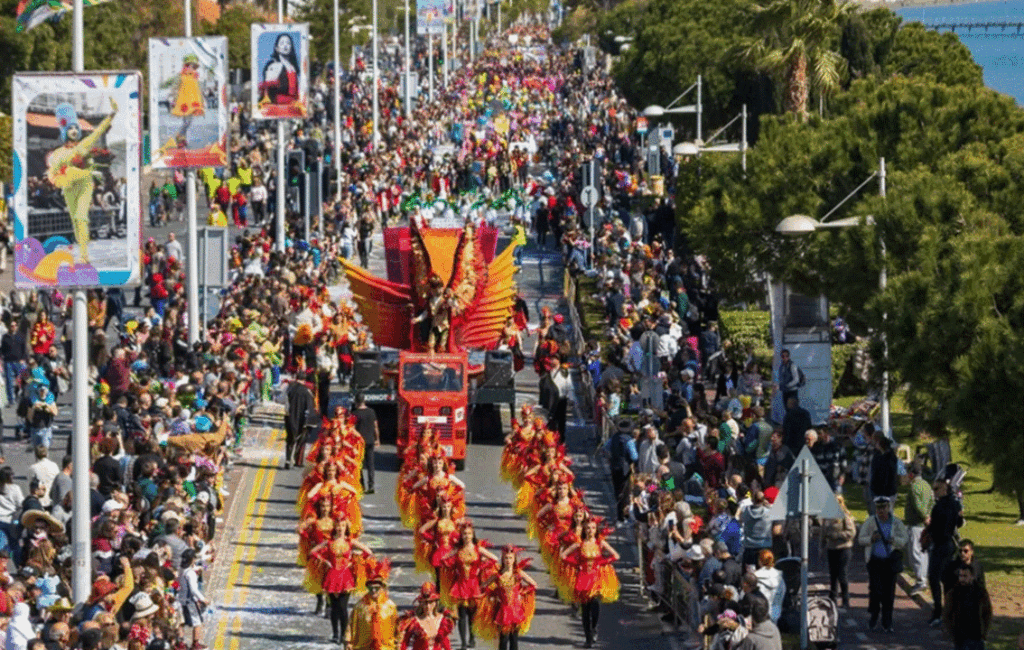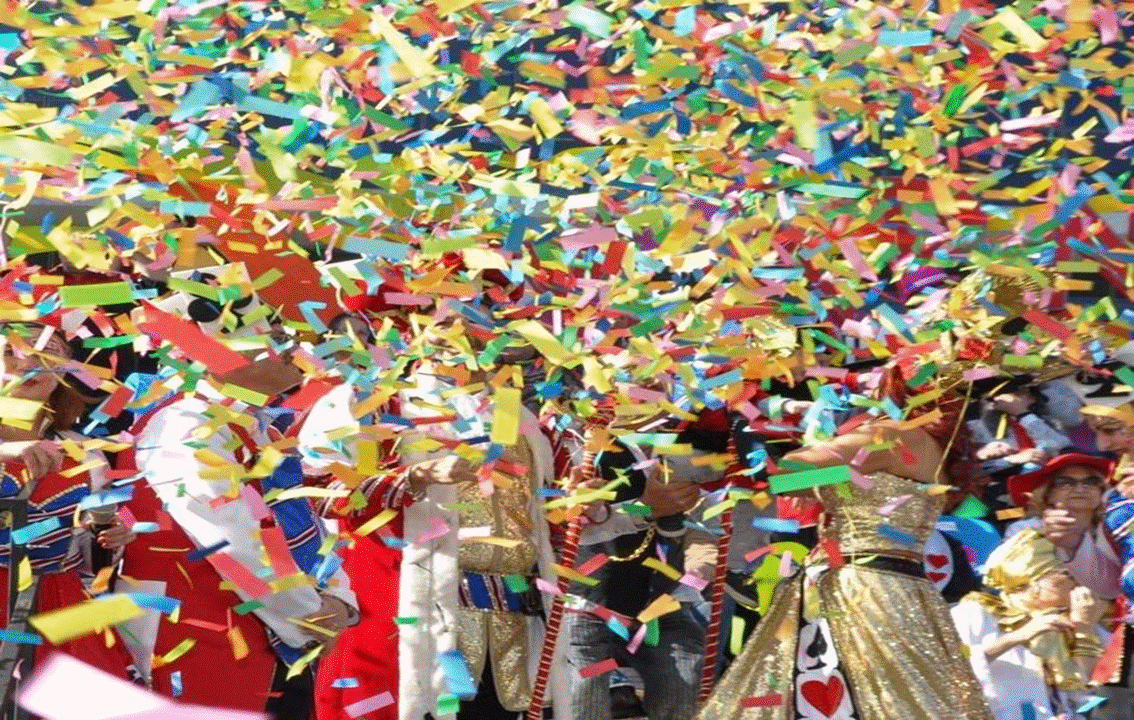CARNIVAL TIME
IN CYPRUS
CARNIVAL SEASON RETURNS TO CYPRUS
SEVERAL PARADES ACROSS THE ISLAND TO TAKE PLACE IN THE RUN-UP TO EASTER
Carnival time signals the beginning of spring and the Easter period in Cyprus and each local municipality has already begun preparations for a bigger and better spectacle this year. Each city is planning its grand parade, parties, music and dance, bringing people of all ages together to celebrate one of the island’s biggest festivities.
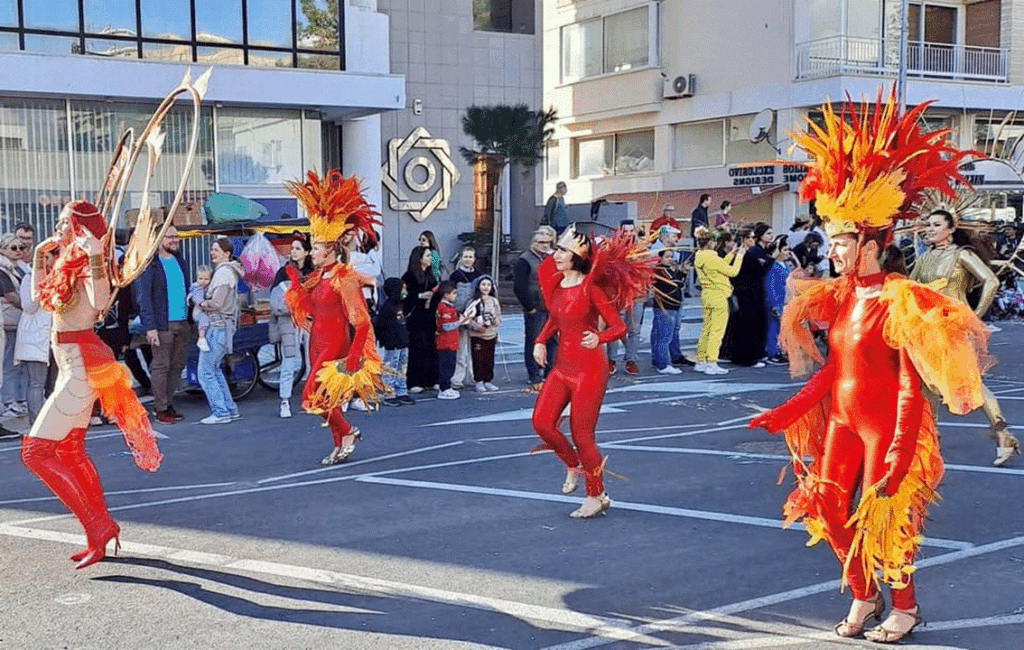
Here’s what to expect for the parades in all the major cities
==Nicosia: The capital city hosts its annual carnival parade in Aglandjia on Sunday, February 23rd. The parade will start from Kyrenia Avenue at 11.30 am, and will end at the Road Safety Park with DJs continuing the fun. Several floats and dance groups in fancy dress will entertain the crowds all day long.
BRINGING PEOPLE TOGETHER
The Cyprus carnival is a rich tapestry of cultural traditions, religious practices, and social customs and over time, it has become a time for people to come together in celebration, regardless of social class or background. It is a time for revelry, merriment, and the suspension of normal social conventions. Carnival allows people to express themselves through music, dance, and costume, and it provides an opportunity for communities to celebrate their cultural traditions and heritage.
CARNIVAL ORIGINS
The Cyprus Carnival, also known as ‘Karnavali’ in Greek, is a festive and colourful celebration that takes place in various villages, towns and cities across the island. Cypriot tradition has contributed to the unique and vibrant nature of the island’s carnival heritage, and this is reflected by the festival’s vigorous celebrations throughout the island. The Cyprus carnival is thought to derive from an ancient Greek festival, which took place every spring honouring Dionysus, the god of wine. The pre Christian festival was held every year to celebrate the end of winter and the coming of spring and involved excessive wine consumption, street processions and street dancing.
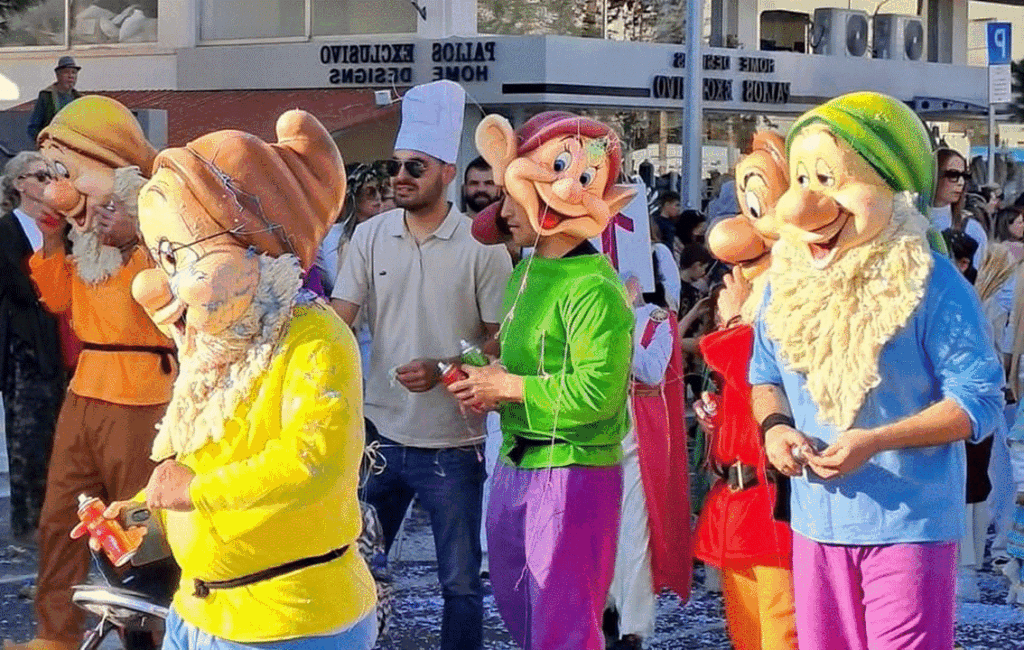
CHRISTIAN DOCTRINES
Christianity would eventually amalgamate the pagan festival into its doctrines and the Orthodox Church would associate the celebration with rejuvenation, new beginnings and a pre-cursor to the start of Lent. The word ‘carnival’ is believed to have originated from the Latin word ‘Carnevale,’ which means farewell to meat. This reflects the practice of abstaining from meat during Lent, making carnival a time for feasting and over indulgence before the period of fasting leading up to Easter. There have been some notable recorded written references to the Cyprus carnival through the ages, but it is generally accepted however, that the celebrations as we know them today, are a legacy of Cyprus’s Venetian rulers of the 15th century. The medieval period saw the development of elaborate carnival celebrations all over Europe and in particular Italy. The city of Venice became famous for its lavish carnival festivities and the Venice carnival, included some of the biggest and most flamboyant masquerade balls, parades, and street performances. The Venice carnival, with its elaborate masks and costumes, became renowned for its opulence and extravagance and the island’s Venetian rulers fully embraced this and directly fed it into the Cyprus carnival at the time.
CARNIVAL TIME
Cypriots in general have a time-honoured reputation for being a fun loving and very sociable people, and most residents live up to this during carnival time on the island. The ten-day event includes a great deal of eating, singing, satire, games, and costumed street parties. The biggest carnival event takes place in Limassol, but each municipality organises its own carnival festivities over the ten-day period. Street food and refreshments are also abundant during these celebrations and the colourful festival culminates with a costumed grand parade, which takes place fifty days before Orthodox Easter Sunday. People generally line the streets harbouring the grand parade, which include an array of colourful floats, music and lively dance troupes.
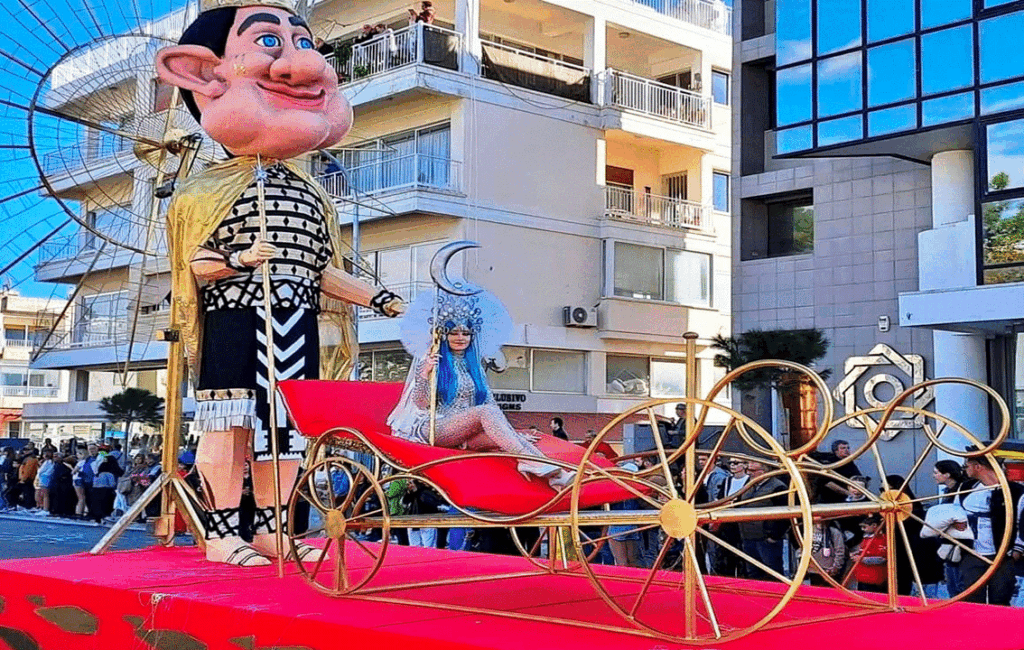
COLOURFUL STREETS
Local schools in each municipality are usually involved and take an active part in various parades and processions. The streets come alive with vibrant colour and joyous activities and this includes people dressing up and dancing through the streets. Local musicians as well as dancers also actively participate in the festival. The first week of the celebration usually begins on a Thursday and this day is known as Stinky Thursday or ‘Tsiknopempti’. The name derives from the smell of street cooking and marks the beginning of meat week or ‘Kreatini’, which signals the final week of meat consumption before Lent and the Orthodox Easter fast. The second week of the festival, introduces cheese week or ‘Tyrini’, which signals the final week of dairy consumption before Lent and the Orthodox Easter fast. Some carnival celebrations often include regional traditional rituals and customs, such as the election of a carnival king and queen. Other regions on the island sometime burn effigies, or emphasise the throwing of confetti and streamers. Some of the staged events also sometimes include a masquerade ball or costume contest, held during their carnival festival.
SATIRICAL FIGURES
All carnivals have a satirical king and queen that lead the processions. The king and queen bless onlookers and bestow them with health and good fortune. Other smaller daily events take place in anticipation of the grand carnival parade, which takes place on the 10th and final day of the festivities. In recent years, the main event on the island has become a platform for social and political commentary, meaning that the grand carnival parade has sometimes followed a satirical version of a current social, political or economic theme relevant to Cyprus. Evidence of this has been apparent in recent carnival celebrations on the island. The carnival king or queen has in the past taken on real life characters and portrayed them in a satirical sense. Recent carnivals for example, have depicted the carnival king with monetary Euro signs indicative of the recent economic crisis in Europe and a satirical Angela Merkel once represented the carnival queen. Carnival music, dance, and some performances have also been used to incorporate such themes into the celebrations, addressing contemporary issues and challenges that the island has recently faced.
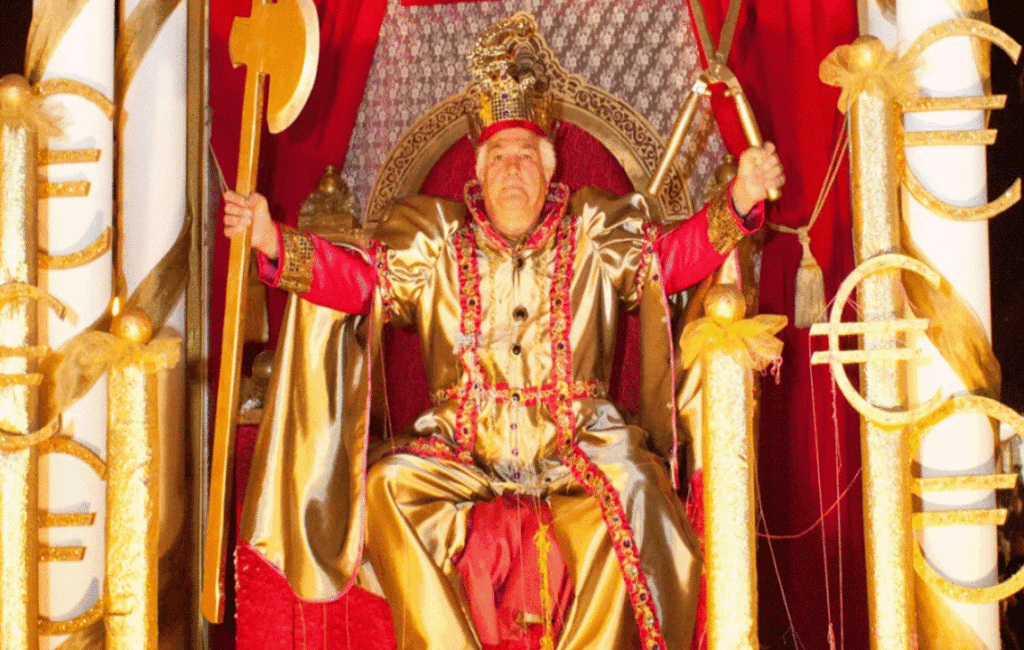
TEN DAYS OF FUN
The Cyprus carnival overall is a wonderful opportunity to experience and celebrate the transition from winter to spring on the island and offers all a chance to contemplate what the rest of the year will bring. The carnival season this year begins on Saturday, February 22nd, with celebrations continuing through to Sunday March 2nd. As well as the numerous street celebrations, most hotels and cultural organisations in each city are once again holding fancy dress balls and several parties that are being constantly staged throughout the ten-day carnival period.
